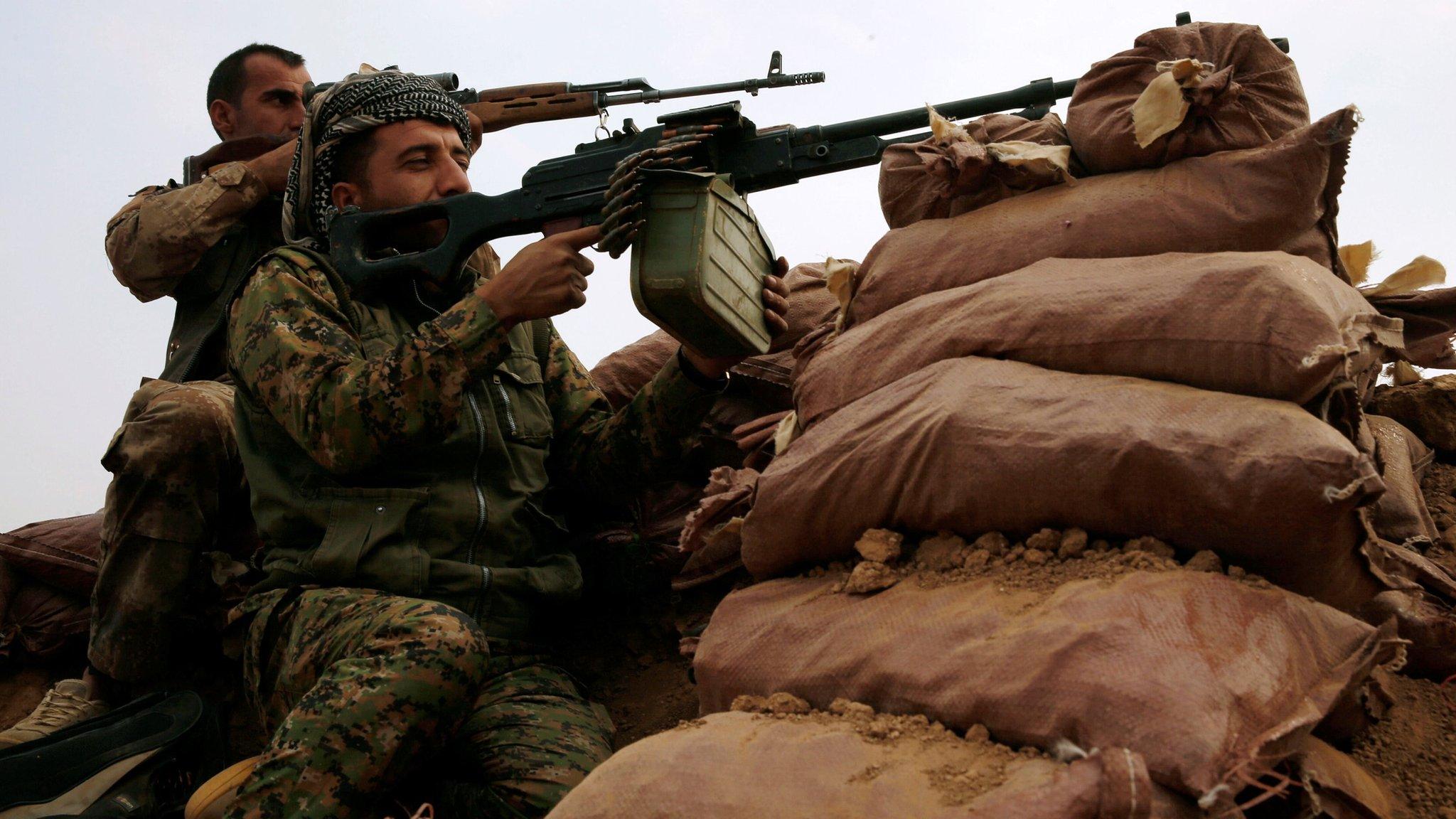Mosul: How is IS selling the battle?
- Published
Several IS videos claim to show everyday life in Mosul
So-called Islamic State (IS) has gone on a propaganda offensive as its enemies close in on its Iraqi stronghold of Mosul.
The city holds symbolic weight for IS because it was here that the group's leader, Abu Bakr al-Baghdadi, made his first - and only - appearance following its declaration of a "caliphate" in the summer of 2014.
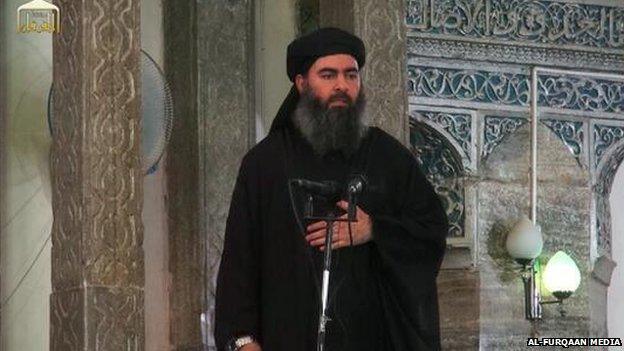
IS chief Abu Bakr al-Baghdadi made his sole public appearance at a mosque in Mosul in 2014
Since Iraqi and Kurdish forces launched their operation to retake Mosul on 17 October, IS has portrayed itself as having slowed its enemies' advances, inflicted heavy losses, and suffered few setbacks itself.
But there have been mixed messages. Some IS videos have shown people shopping calmly in Mosul's street markets, while others have depicted the destruction of civilian infrastructure and militants vowing to fight to the death.
Life 'as normal'
IS has stepped up its propaganda output since the battle began, managing to get its version of events out despite a crackdown on its social media presence.
In the first week, the number of news updates, reports and videos published by IS self-styled news agency Amaq almost doubled. A large proportion of them were dedicated to developments in Mosul and its surrounding areas.
Some of this aimed to show it was business as usual. One video featured children in the streets and busy markets, with Mosul "residents" claiming that a sense of security was prevailing.
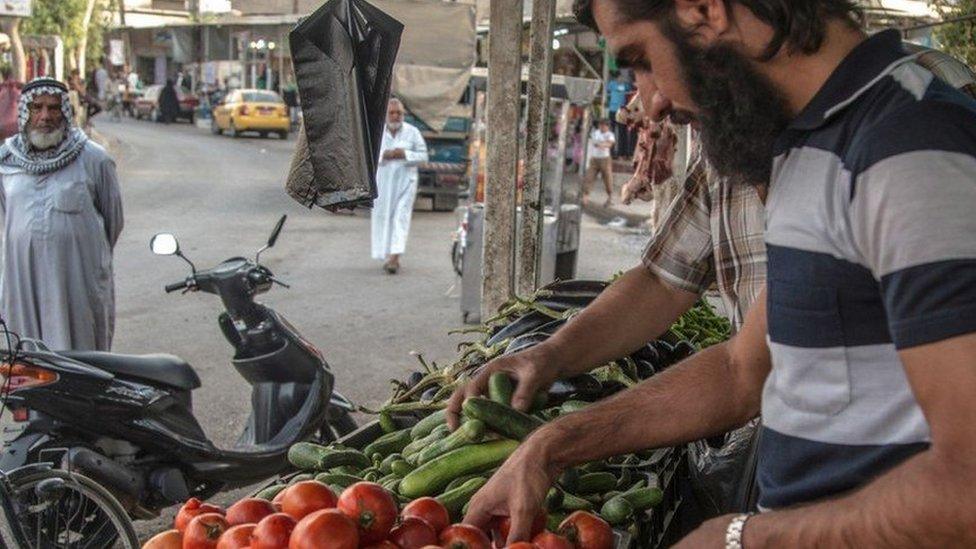
A scene from a marketplace in south-eastern Mosul, depicted by IS
A set of pictures illustrated the mundane work of a Mosul dental surgery as the battle raged in villages to the east.
But the group also highlighted what it said was damage to civilian infrastructure caused by US-led coalition air strikes, including a "health centre" and a "children's nursery" in outlying towns.
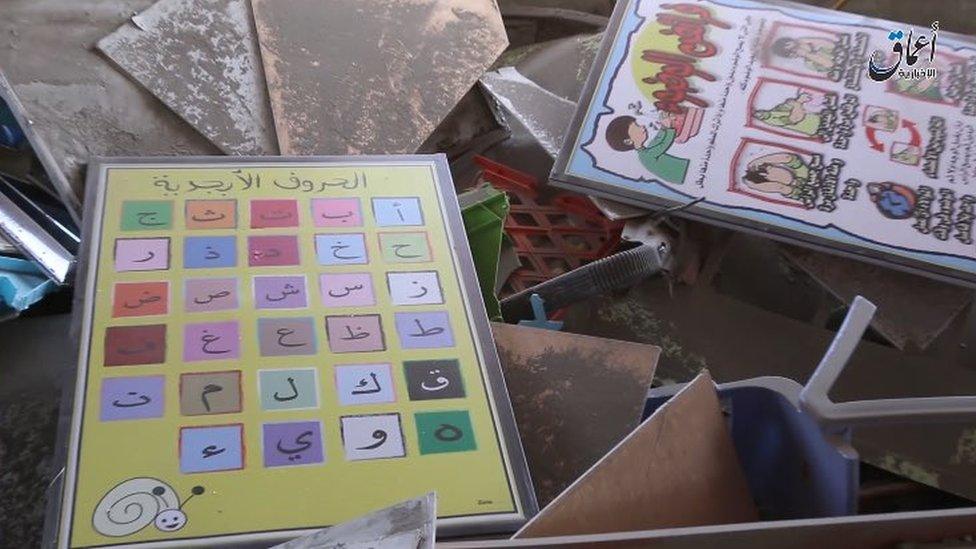
A "children's nursery" IS said was destroyed by a US air strike, though teaching aids appear intact
And it alleged that women and children had been hit in Mosul itself by random Kurdish shellfire.
Attacks urged
IS has emphasised the array of foes it is facing in its battle for Mosul, making regular references to the Iraqi military, Kurdish Peshmerga and Shia-dominated Popular Mobilisation (PM) forces, and underlining the fact that they enjoy US-led coalition backing.
The group depicts itself as standing staunchly against the odds to defend Islam, and has prepared its followers for potential military defeat. The group's late spokesman Abu Muhammad al-Adnani, who IS said was killed in an air strike in August, stressed months ago that upholding "true Islamic faith" was more virtuous than control of land.
But IS has promised that the battle for Mosul will be protracted and the price for its enemies high.
Its online reports and military updates have highlighted suicide attacks, external - claiming a total of 58 over the first week of battle - fending off failed advances by enemies, and inflicting human and material losses.
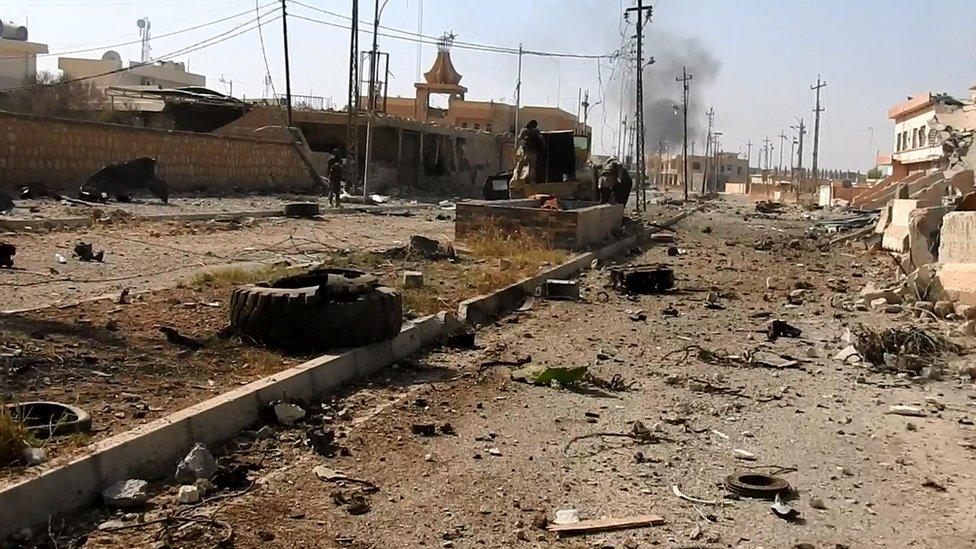
IS has used waves of suicide bombers to hit back back at attacking forces
Its propaganda has generally downplayed setbacks, failing to mention the vast majority of villages that have changed hands. It has acknowledged some losses, such as that of the town of Bartella to the east of Mosul and a siege on its positions in Bashiqa to the north-east.
Iraqi authorities reported that around 80 villages had been captured from IS over the first week of the Mosul operation.
IS media meanwhile played up diversionary attacks in Kirkuk, external, south-east of Mosul and Rutba in remote western Iraq.
And in a sign of what might be to come, it called on its supporters to carry out attacks worldwide in support of their "brothers" battling for the city.
BBC Monitoring, external reports and analyses news from TV, radio, web and print media around the world. You can follow BBC Monitoring on Twitter , externaland Facebook, external.
- Published10 July 2017
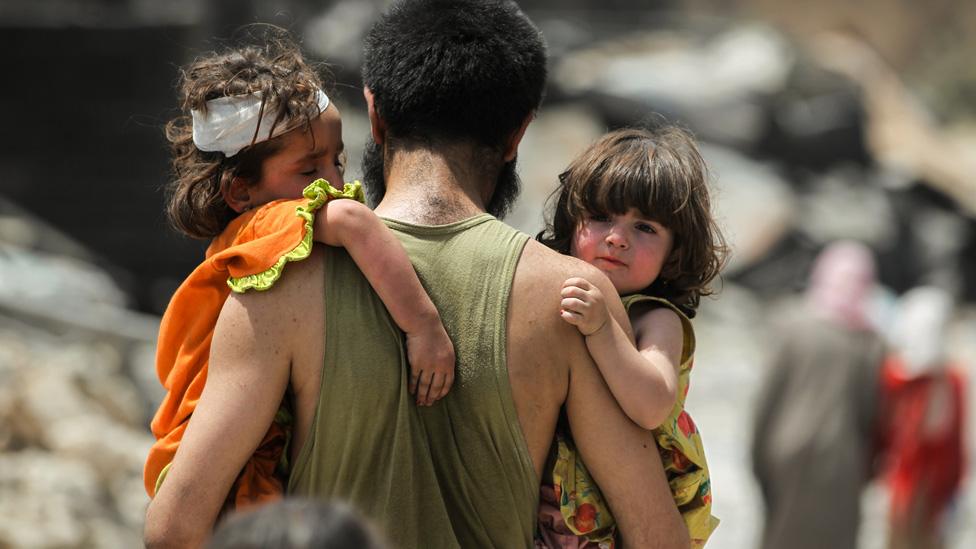
- Published25 October 2016
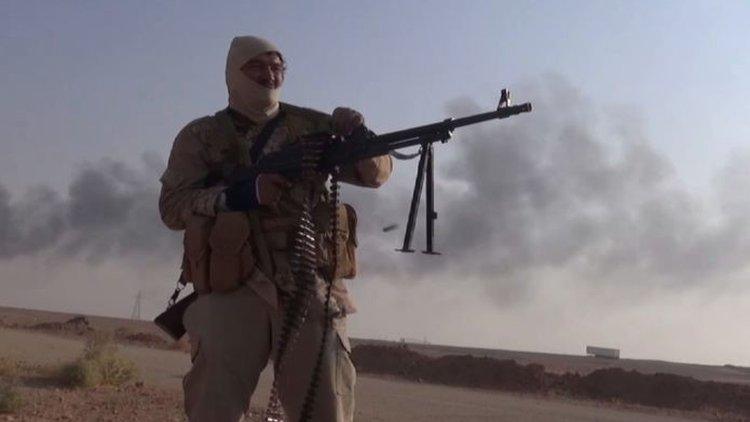
- Published21 October 2016
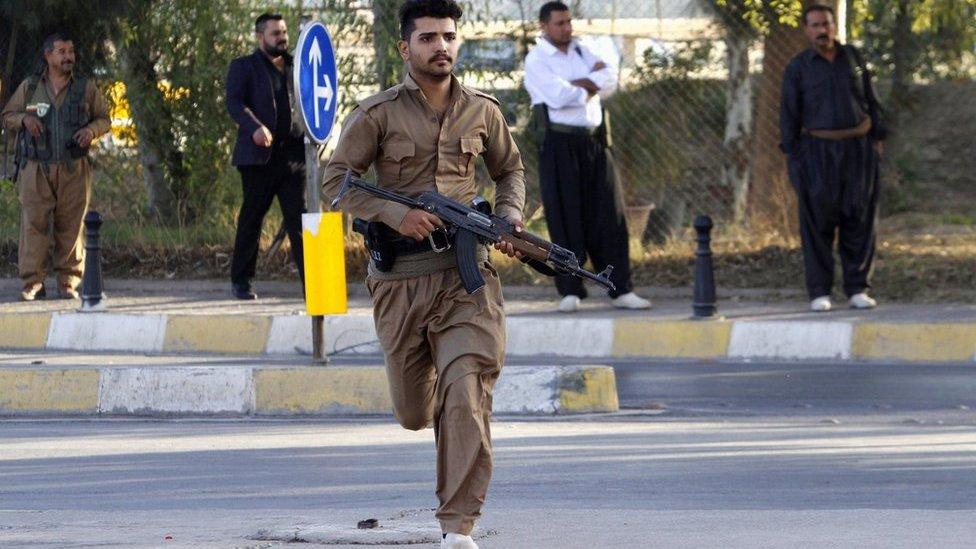
- Published24 October 2016
